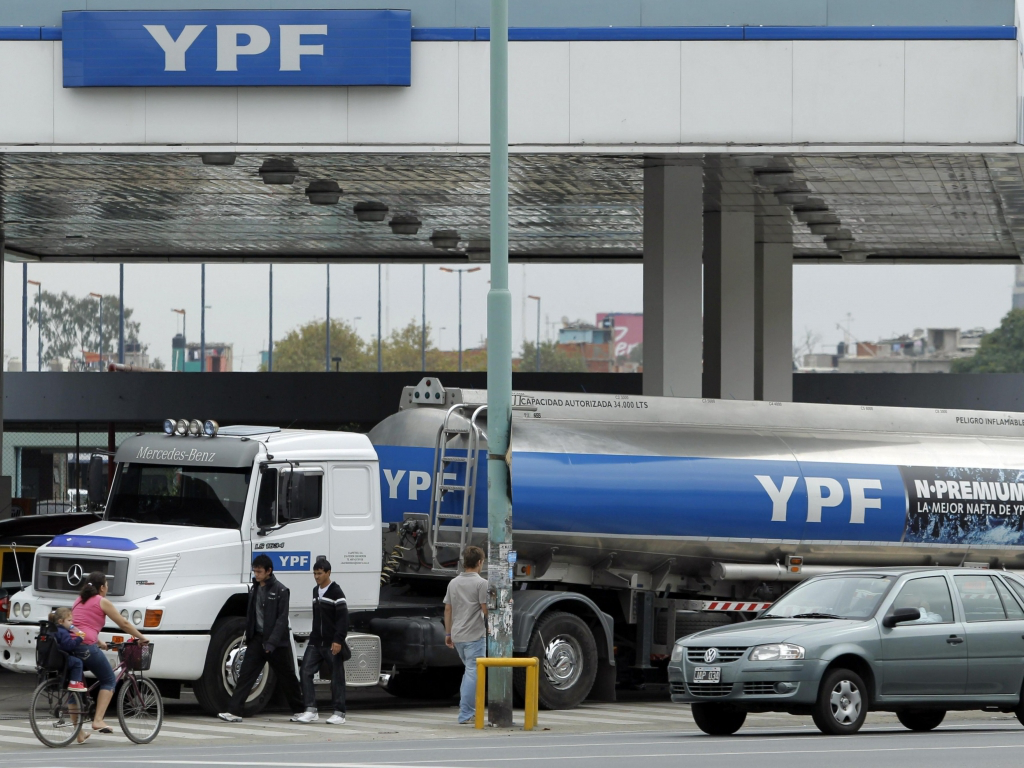KEY POINTS
- U.S. Justice Department opposes seizure of Argentina’s YPF stake.
- Argentina faces economic pressures with inflation over 200 percent and an IMF loan deal.
- The ruling could impact sovereign immunity laws and U.S. foreign assets.
The U.S. government has taken a stance in support of Argentina, urging a federal judge to reject the seizure of Argentina’s majority stake in YPF, the country’s national oil company, as a means of settling a $16.1 billion judgment.
This legal backing, presented by the U.S. Department of Justice, argues that enforcing a turnover of Argentina’s 51 percent stake in YPF to satisfy a court order would infringe on the principles of sovereign immunity and impact U.S. foreign policy.
Sovereign rights and judicial concerns
The Department of Justice submitted a letter to U.S. District Judge Loretta Preska, asserting that U.S. courts lack the jurisdiction to compel a foreign nation to relinquish assets held outside of the United States.
This judgment arose from Argentina’s 2012 nationalization of YPF, which stripped Spanish energy company Repsol of its controlling stake without compensating minority shareholders.
The case was filed by Petersen Energia Inversora and Eton Park Capital Management, whose claims are financially supported by Burford Capital, a prominent litigation funder.
Argentina’s legal defense insists that the Foreign Sovereign Immunities Act should shield it from asset turnover.
Allowing the forced turnover, according to the Justice Department, would establish an international precedent that could jeopardize U.S. assets abroad, as other nations might reciprocate with similar claims against American assets within their own borders.
Economic implications amid rising inflation
This legal showdown comes as Argentina grapples with economic hardship under President Javier Milei, whose administration is wrestling with a recession and annual inflation rates soaring above 200 percent.
As part of a broader austerity agenda, Milei has implemented sweeping cuts to public spending, a move aimed at containing inflation but which has deepened poverty levels across the nation.
Argentina is also navigating a complex $44 billion loan arrangement with the International Monetary Fund (IMF).
According to Reuters, the Milei administration’s efforts to recalibrate economic policies could benefit from diplomatic support as the nation seeks to renegotiate terms with the IMF.
Milei’s relationship with the U.S. President-elect Donald Trump may play a role in these financial discussions, adding another layer of complexity to Argentina’s geopolitical and economic landscape.
Legal precedents and future considerations
Burford Capital has argued that Argentina’s history of structuring its assets to evade enforcement justifies compelling it to surrender the YPF stake.
In contrast, the Justice Department’s filing argues that the spirit of U.S. law does not support seizing foreign sovereign property, particularly given the sensitive nature of the U.S.-Argentina relations and potential repercussions on American assets worldwide.
The timing of Judge Preska’s final ruling remains uncertain, but the decision will have far-reaching implications for both international law and U.S. diplomatic policy.
If Argentina is forced to relinquish its YPF shares, it could reshape the landscape for foreign asset protections, potentially inviting similar claims on U.S. properties abroad.



